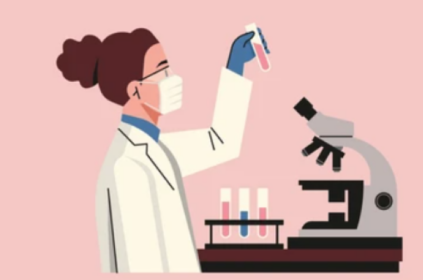Triple negative breast cancer (TNBC) is both aggressive and difficult-to-treat. This form of breast cancer, which accounts for about 15% of cases, lacks progesterone and estrogen receptors, as well as HER2 receptors. Because of this, TNBC doesn’t respond to hormone therapies or HER2 drugs. TNBC may initially respond well to chemotherapy. However, this cancer becomes more treatment-resistant upon recurrence.
The medical science community needs to focus on developing treatments for people with treatment-averse cancer like TNBC. This is the best way we can help those affected live longer, happier lives. And researchers from King’s College London are working to change the way we approach TNBC treatment.
An Innovative Treatment Philosophy
Inside Precision Medicine discusses how scientists from King’s College London set out to uncover a novel treatment option for people with triple-negative breast cancer. To begin, the research team sourced 6,173 primary breast cancer tumors for testing. Their research, funded by research and support charity Breast Cancer Now, sought to better understand the biology of cancerous cells. For example, what is expressed on the surface of cancerous cells and tumors? What mechanisms do cancer cells use to evade treatment?
Research published in Clinical Cancer Research unveils (some of) these answers. First, the researchers learned that TNBC breast cancer cells overexpressed EGFR. EGFR, which stands for epidermal growth factor receptor, helps cells grow. This led to the heightened CDK (cyclin-dependent kinase) expression, with excess in CDK2. When CDK expression is higher, cancer cells are better able to proliferate (grow and spread).
Using these insights, researchers developed a novel combination treatment that pairs a CDK inhibitor with cetuximab, which targets EGFR. Cetuximab is currently used to treat colorectal cancer and squamous cell carcinoma of the head and neck.
This novel treatment targets the CDK and EGFR expressed by breast cancer cells, allowing for a more direct treatment. Since the drug is designed to target these cells specifically, it also minimizes damage on healthy cells and tissues.
Before you get too excited, it’s important to note that much more research and testing is needed before the drug reaches clinical evaluation and development. However, the findings thus far suggest a promising future for TNBC treatment.
Editor’s Note: Get Involved
Cancer doesn’t discriminate. WHATNEXT and its partners are interested in amplifying the voices of those from all identities and backgrounds. If you have a cancer journey to share, reach out here to learn more about how your voice can help spread awareness and inspire individuals from all walks of life.
breast cancer cetuximab medical research oncology TNBC triple negative breast cancer
Last modified: July 9, 2024











